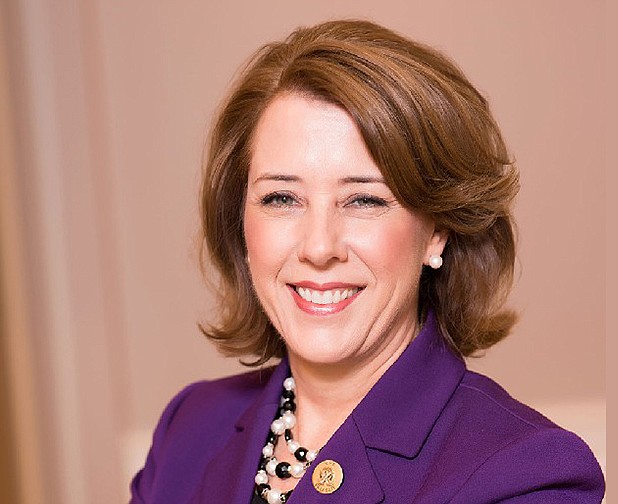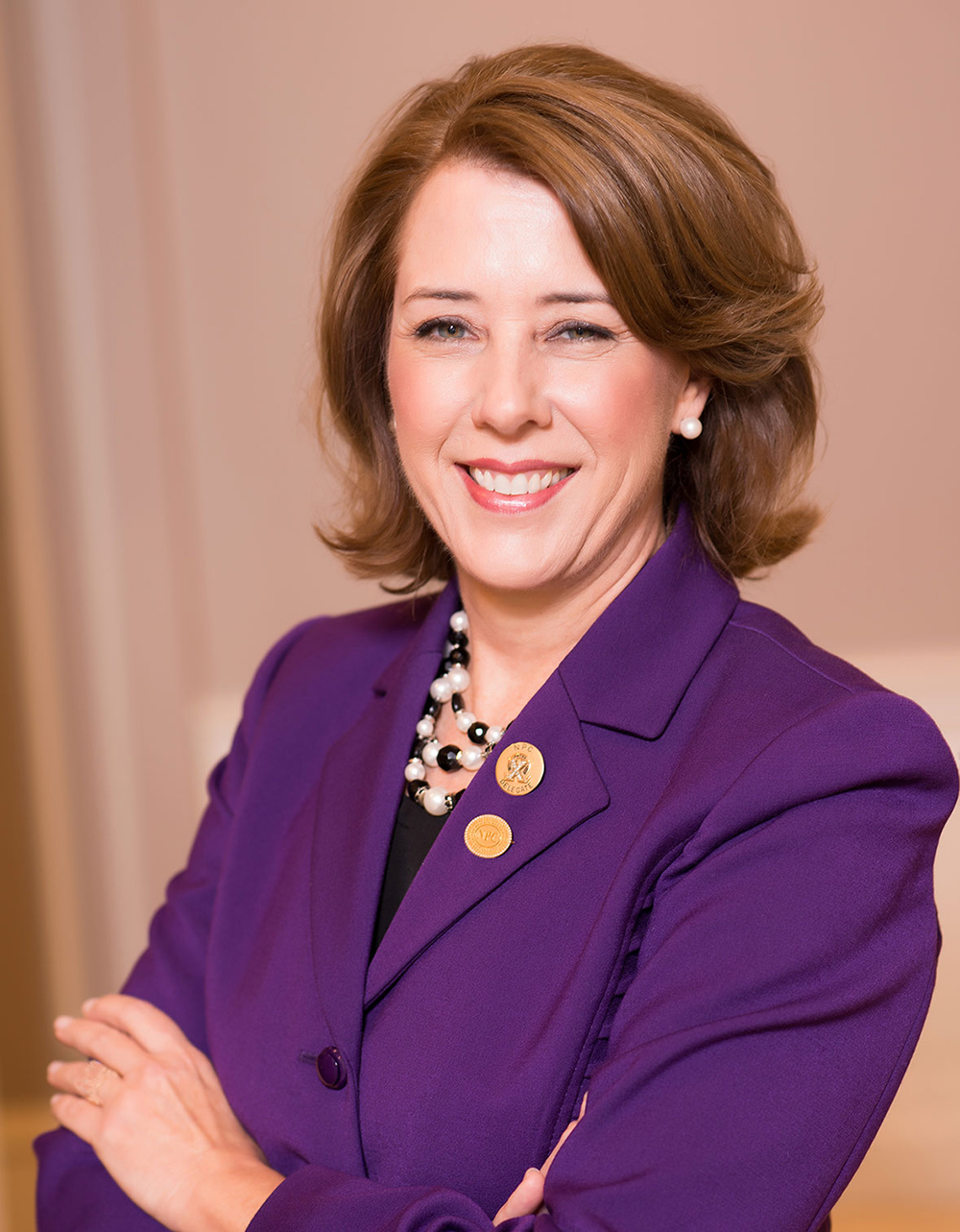IF YOU GO• What: Jean Mrasek.• When: 3 p.m. Sunday.• Where: UTC University Center, Tennessee Room, 615 McCallie Ave.• Tickets: $20 at the door, students free with valid ID.• Information: chattpanhellenic.com
Collegiate sorority women donated a total of $5.2 million to philanthropies last year, along with 850,411 hours of manpower in community service, according to the National Panhellenic Council.
That collaborative effort of sisterhoods, proving the power of working together, will be the theme of Jean Mrasek's talk when the National Panhellenic Council's chairman comes to Chattanooga Sunday. Appearing at the University of Tennessee at Chattanooga for an "all-sisters event," her visit is sponsored by the Chattanooga Area Alumnae Panhellenic Association and UTC's Collegiate Panhellenic Council.
The National Panhellenic Council is the umbrella organization for 26 national/international sororities. It provides support, guidance and advocacy for Greek females with the goal of improving the sorority experience. Every national sorority elects NPC delegates for council representation, and the presidency rotates among every group. Universities with chapters of these national organizations on campus have collegiate councils for support on the local level.
"The title of my speech is 'NPC: A Shared Commitment.' I will be talking about a collaboration for the greater good, working as a coalition, as a unified group of women," the nation's top Greek female says during a phone interview from her office at Texas Christian University.
Although sororities are reporting record growth nationwide, Greeks still struggle to shed their party image with every report of hazing or substance abuse in the media.
"The only way you get around these topics is to talk about them," says Mrasek. She's expected to address such campus issues with alumnae and collegians during Sunday's talk.
When not traveling on behalf of NPC, Mrasek serves as chief of staff at TCU, working in the office of the chancellor, and is also secretary of the university board of trustees. She is a member of Chi Omega sorority and served as Chi O's national president from 2004 through 2008.
"She is such a phenomenal female leader," says Shelley McGraw, Chattanooga Area Alumnae Panhellenic president. "She has been involved with all kinds of charitable causes, so we are excited to bring her to UTC to speak to collegiate women on leadership."
Q. Just days after Kira Kazantsev was crowned Miss America, it was revealed that she had lost her sorority membership due to allegations of hazing. Clemson University suspended its 24 fraternities on Sept. 24 while allegations of hazing and violations of student code of conduct are investigated. It's an issue that's repeatedly in the news. What is NPC doing about it?
"I can very clearly say NPC supports every effort to eliminate hazing. I can assure you each NPC group takes this very seriously and every group has some type of education on this particular issue.
"At the national level, we have a program called Something of Value. College Panhellenics can request the program, which addresses risky behaviors. We take them through a case study of a situation and ask them to consider the ramifications of decisions made."
(According to information provided by NPC, the program is held in a confidential session led by trained volunteers with Panhellenic backgrounds. At least one attorney is also present to answer legal questions the collegians bring up. Advance planning enables the program to be tailored to issues collegians have identified on their campuses. Since being launched in 1995, the program has been conducted on 20 campuses each year.)
Q. What new initiatives is NPC preparing?
"We are launching a new educational program in January called Panhellenic Academy. It will be held in Indianapolis. It's a first-come, first-served training program, limited to 250 college Panhellenic presidents and recruitment chairmen, to learn best practices and tools they can take back to their chapters. Based on how it goes, we may launch the program in a more regional way.
"The other thing we are launching next year is a template, if you will, on how to hold information sessions hosted by Alumnae Panhellenic Councils. A lot of cities have alumnae councils that host information sessions for girls going off to college and their moms so they can learn more about sorority life. We have taken some great ideas from the best Alumnae Panhellenics and put that in a template."
Q. UTC has seen the number of women signing up for sorority recruitment almost triple in the last decade. Is this growth a Southern trend or one you see on the national level?
"By all our indicators, sorority membership is thriving. We are seeing large numbers in recruitment as well as in expansion requests to add chapters to college campuses."
(NPC statistics report 325,772 undergrads were sorority members on 666 campuses across the country in 2013.)
"It's not just a Southern thing. We're seeing these big numbers in mid-America and a lot of growth in the Northeast. I can share that we saw a 10 percent increase in recruitment numbers this year over last, and that was a 10 percent increase over the year before."
Q. To what do you attribute this growth?
"It corresponds with the high numbers of females enrolling in colleges nationwide. This growth trend was predicted several years ago, and we are riding the wave of it right now."
Q. Why do you believe sorority membership remains relevant to collegians today?
"Sororities offer a support network. Our college graduates are telling us that they were emotionally supported by their sisters in college, and we know that the college experience is enriched with exposure to alumnae advisers.
"A Gallup research study recently confirmed sorority experience contributed to the overall well-being of women. The poll also shows there is a higher work engagement for graduates of sororities and fraternities and that women felt more connected with their alma mater."
(Gallup polled 30,000 college graduates, 16 percent of whom were men or women with Greek affiliation. The poll found 59 percent of fraternity and sorority alumni thriving in well-being categories, compared to 54 percent of those who were not Greeks.)
"We may see differences in learning approaches, such as online learning, but people will still gravitate to communities and places where they feel they have a voice, support and are able to share ideas with others."
Contact Susan Pierce at spierce@timesfreepress.com or 423-757-6284.

